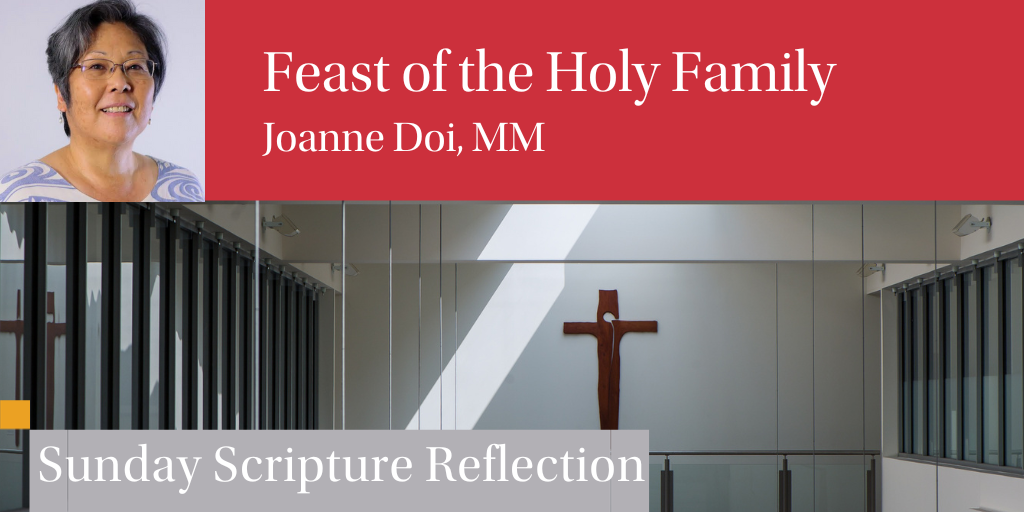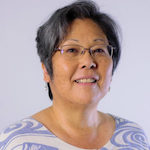

Readings:
Reading 1: Sirach 3:2-6, 12-14
Responsorial Psalm: 128:1-2, 3, 4-5
Reading 2: Colossians 3:12-21
Gospel: Luke 2:22-40
The reading from Sirach affirms that honoring our mother and father in youth and old age honors God as our prayers are heard. Caring with kindness, consideration and patience for as long as they live, even if their minds fail, firmly plants against the debt of our sins or rather, brings us closer to God as the sacred shines through their vulnerability and touches ours. In today’s world, the challenge of caring is great since often family members are located in different cities, states, even countries, and continents. We also have blended families, families of “choice” of those near and dear to us, even laying our life down for one’s friends who have become family. In a way, God chose a family for Jesus with Mary and her bethrothed Joseph, who was not his biological father, yet a loving parent in every sense. Thus they are the Holy Family.
Yet Jesus will not have the opportunity to care for his parents in their old age as Luke’s gospel has Simeon blessing and saying to Mary that Jesus is destined “to be a sign that will be contradicted” and a sword will pierce Mary’s heart. The cross will take him and hearts will be broken. Parker J. Palmer writes that “there is no way to be human without having one’s heart broken,” and notes two ways for the heart to break. Broken apart into “a thousand shards” of an unresolved wound that inflicts its pains upon others or “broken open to hold one’s own and the world’s pain and joy,” deepening heartfelt compassion, empathy, kindness, humility, gentleness and patience, as St. Paul writes to the Colossians. The peace of Christ that emanates from a love that is stronger than death transforms a heart broken apart to one that is broken open in our vulnerability that can connect with others’ suffering and sacredness, called into one body. This expansion of love gives cause for “singing psalms, hymns and spiritual songs with gratitude in your hearts to God.” Frederich Buechner reminds us that where God seems most helpless and fragile is where God is most strong; “just where we least expect God” is when God comes most fully.
That we are living in heart breaking, despairing times is an understatement, with wars and conflicts erupting across the globe; horrific loss of many family members is real and stark. Climate change threatens our common home. Refugees, migrations and politics accelerate the disruption of families. For those in solidarity, reference to compassion fatigue is now common. Yet a larger sense of family can help us orient our healing and deepen our convictions for peace. Here I refer to the indigenous concept of All My Relatives (Mitakuye Oya’sin in Lakota) that includes the four legged, two legged, winged creatures, all of creation. We are all interconnected in our vulnerability and strength. The earth herself offers her life energies even as she is suffering from the destruction of wars and increasing carbon footprints. As the Covid pandemic revealed, she is able to rebound when we pause from polluting and extracting. Can we care for our Mother Earth in her old age and thus for each other? Thus, may God hear our prayers for peace in our hearts, peace in our world and teach us how to live in the tragic gap between what is and what could be with faith and hope.